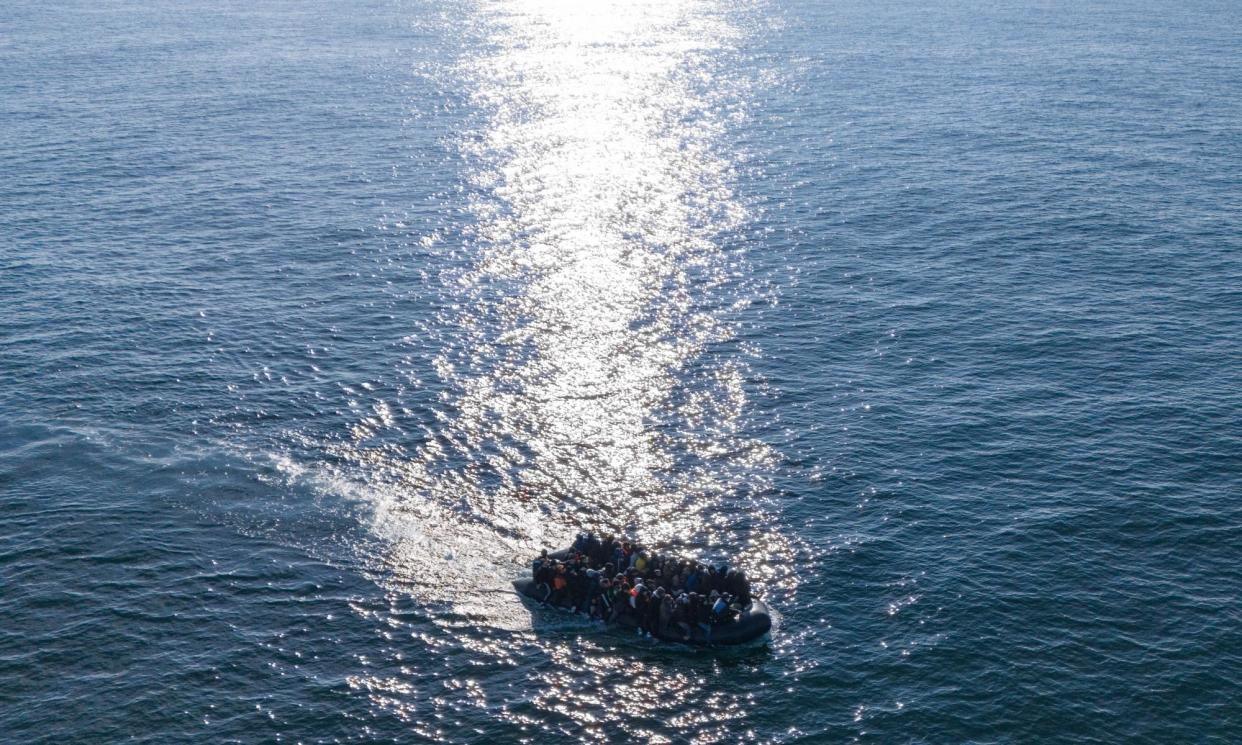Stumbling blocks that could still impede Rwanda deportations

After a bumpy and lengthier than expected journey the government’s safety of Rwanda legislation has finally reached the parliamentary finishing line with royal assent expected this week. But as a battle on one front ends for the government several new ones open up.
Condemnation of the UK government for pushing ahead with the Rwanda scheme has been unprecedented, within the UK from parliamentarians, lawyers and human rights campaigners and from European and global human rights organisations. UNHCR today issued a statement warning that the new legislation did not overcome the protection gaps identified by the supreme court, which found Rwanda to be unsafe for asylum seekers from the UK. It urged the UK government to reconsider the plan.
Here are the challenges the government still faces before getting flights off the ground.
Legal challenges
New legal challenges against flights to Rwanda are expected not only on behalf of individual asylum seekers identified for forced removal to the east African country but relating to broader issues too.
Most of the courts have not been on the government’s side with their novel and untested Rwanda scheme. Toufique Hossain of Duncan Lewis solicitors, part of the team of public law and human rights lawyers who have challenged the Rwanda plan, said: “This legislation damages the UK’s proud, ancient record of championing separation of powers, the constitutional right of access to justice and protecting people from serious harm. However, there are clear legal avenues to pursue, to hold this government to account and we will be pursuing them on behalf of our clients.”
Finding an airline
Rishi Sunak said on Monday that commercial charter planes have been booked for specific slots to fly asylum seekers to Rwanda, although none have been publicly named or confirmed. The government’s air partner AirTanker, which has a £10.5bn deal to provide 14 modified Airbus A330s under a 27-year private finance initiative which started in 2008, said in January 2023: “We are aware of the many reports in circulation and can confirm that AirTanker has no intention of operating deportation flights to Rwanda.”
However it has not responded to requests for comment in recent weeks in response to speculation that it will facilitate the government’s Rwanda flights. Several commercial airlines have previously pulled out of doing government deportation work on scheduled and charter flights after negative media publicity. After an aborted flight to Rwanda that was due to take off on 14 June 2022 using the Mallorca-based company Privilege Style, the business said it would not be doing any future Rwanda flights on behalf of the UK government.
Questions over deterrent effect
Although the government said small boat crossings had reduced by a third in 2023, figures published on Monday revealed a 24% increase in small boat crossings so far this year compared with the same period last year, suggesting that asylum seekers have not stopped climbing into precarious dinghies because of the threat of removal to Rwanda.
Some asylum seekers have told the Guardian that after persecution in their home countries and dangerous journeys, even the risk of drowning in the Channel does not put them off coming here, let alone the risk of being sent to Rwanda. “I come or I die,” one asylum seeker who fled persecution and imprisonment in Syria said. Others said that if they were forced to Rwanda they would try to find money to pay smugglers a second time to get them back to Europe. This runs counter to the government’s argument that Rwanda will smash the people smugglers’ model.
Asylum process and housing in Rwanda
Neither the UK nor the Rwandan government has provided evidence of accommodation for the tens of thousands of asylum seekers in scope for removal to Rwanda. A Foreign, Commonwealth and Development Office document said there was little land space in the small country, even for Rwandans. UNHCR has warned that though Rwanda is training judges, lawyers and officials to process asylum claims from the UK there is no evidence that a robust and independent system is up and running.

 Yahoo News
Yahoo News 
